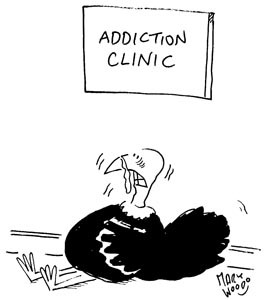English cricket was in a desperate state seven years ago. The players had just been booed off the field after defeat at home by New Zealand. Team morale was poor, while there was little organisation and no vision.
To the rescue came Duncan Fletcher, a little-known coach from Zimbabwe. He had few connections at the top of the England game, and employed his own methods. Fletcher turned out to have a remarkable knack for spotting the international potential of apparently middling players in the county game: Marcus Trescothik, Andrew Strauss, Michael Vaughan and Simon Jones are some of his personal picks. He had a quiet and inscrutable manner, preferring to guide his players rather than instruct. The England cricket captain Michael Atherton, a very good judge whose international career was drawing to a close when Fletcher arrived on the scene, is adamant that Fletcher was ‘the best professional coach England have had’.
Slowly he turned the ship round. By 2005 Fletcher had structured the best England team since the 1960s. More than anyone else — even Flintoff and Pietersen — he deserves the credit for that year’s famous victory in the Ashes. Sadly 2005 did not announce the dawn of a new era. It was followed by an anti-climactic winter tour of Pakistan, and then the humiliating 2006/7 Ashes series when England found themselves on the receiving end of their first 5–0 series whitewash at the hands of the Australians for 80 years.
Throughout this time Fletcher remained unknowable, hidden behind his famous dark glasses. He said very little in public, and bore the brunt of many criticisms that might more fairly have been aimed at fellow selectors or at the players themselves.
In this always fascinating book Fletcher emerges fully into the open for the first time. It is soon obvious that he was far more thin-skinned than anybody realised. Throughout his seven years as coach Fletcher was forced to take constant incoming fire from critics in the media and elsewhere. The England coach seems to have remembered and stored up every single insult. Much of the pleasure of reading this book is the spectacle of Fletcher’s long-delayed revenge.
He chucks a grenade at Henry Blofeld and sticks a stiletto into Christopher Martin-Jenkins. But Fletcher’s biggest targets are the former players who hang around the Test squad in a broadcasting role long after their playing days are over. Some of them are a nuisance. Fletcher has done the cricket world a great favour by taking on Sir Ian Botham, one of the greatest cricketers of all time but — as Fletcher cruelly exposes — an empty and inconsequential analyst of the game. Fletcher also levels the very serious charge that Sir Ian was one of those who led Andrew Flintoff astray on overseas tours, thus potentially damaging England’s performance.
Public critics such as Blofeld, Martin-Jenkins, Botham (and numerous others) are fair game. Unfortunately, in his eagerness to defend his own reputation Fletcher abuses his trust as England coach. For example, he defends at great length his controversial decision to drop Chris Read as England wicketkeeper in favour of Geraint Jones. This defence involves a scathing assessment of Read’s abilities both as a keeper and a batsman. Read has a long cricket career to look forward to and entertains well-justified hopes of returning to the England team. Duncan Fletcher did not need to write such hurtful things about a cricketer who was entrusted to his care and cannot answer back.
Nor does he sufficiently explain his own, lunatic decision to choose Andrew Flintoff over Andrew Strauss as England captain in Australia. Fletcher says that one selector (Geoff Miller) wanted Strauss while the other (David Graveney) was set on Flintoff.
So it was left to me to decide. It was some decision. I agonised and agonised. My brain was saying one man (Strauss), my heart the other (Flintoff). On and on went my vacillation. I was edging towards Flintoff when something clinched it for me.
That something was a chance comment about team motivation by the England Cricket Board head of corporate communications. Duncan Fletcher seems to have badly lost his way by the end of his term as coach. Nevertheless it should never be forgotten that he played a central role in the resurgence of English cricket over the past decade.
The discount offers on books in this section remain open for three months from date of publication.






Comments